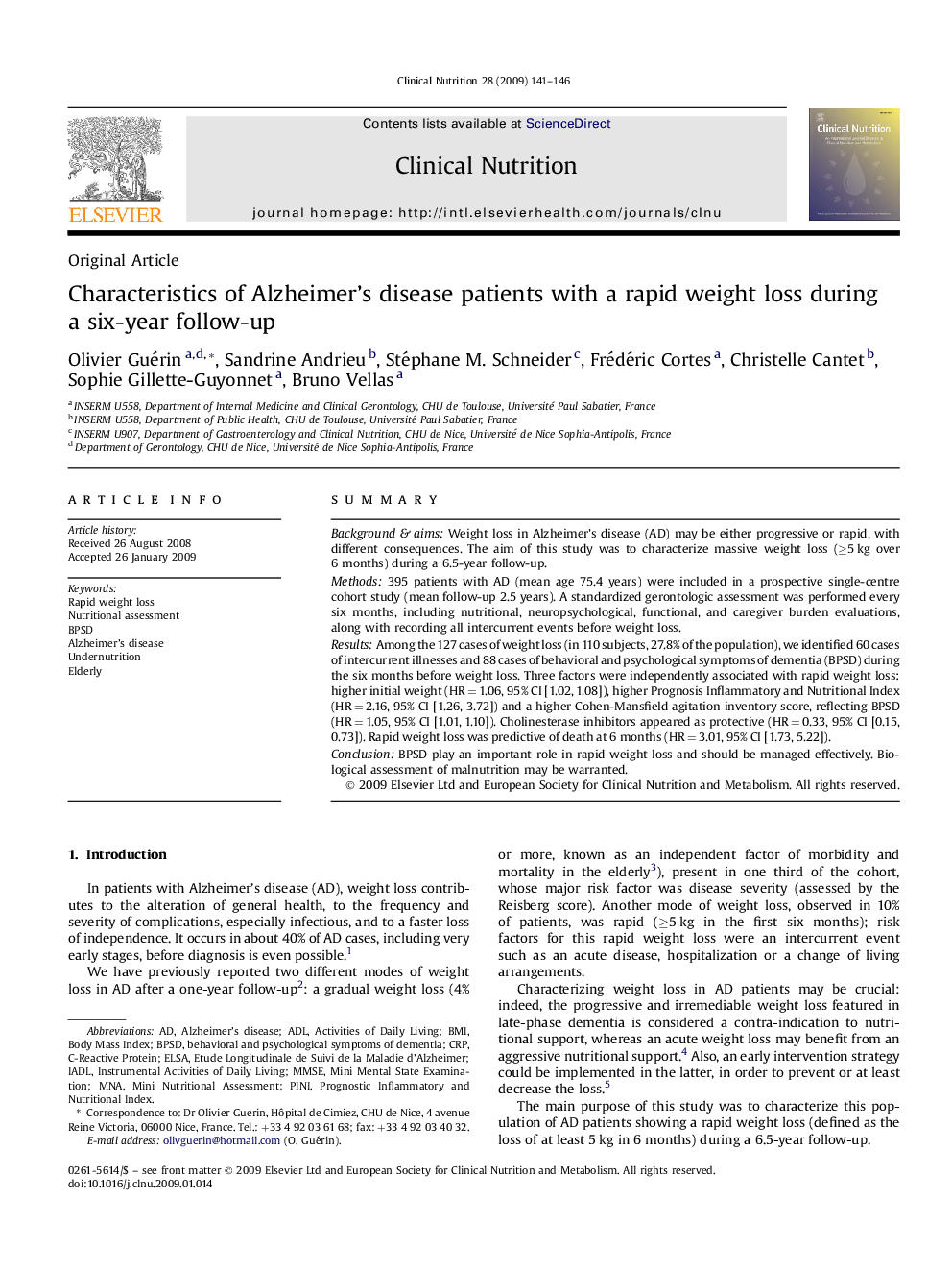| Article ID | Journal | Published Year | Pages | File Type |
|---|---|---|---|---|
| 2683288 | Clinical Nutrition | 2009 | 6 Pages |
SummaryBackground & aimsWeight loss in Alzheimer's disease (AD) may be either progressive or rapid, with different consequences. The aim of this study was to characterize massive weight loss (≥5 kg over 6 months) during a 6.5-year follow-up.Methods395 patients with AD (mean age 75.4 years) were included in a prospective single-centre cohort study (mean follow-up 2.5 years). A standardized gerontologic assessment was performed every six months, including nutritional, neuropsychological, functional, and caregiver burden evaluations, along with recording all intercurrent events before weight loss.ResultsAmong the 127 cases of weight loss (in 110 subjects, 27.8% of the population), we identified 60 cases of intercurrent illnesses and 88 cases of behavioral and psychological symptoms of dementia (BPSD) during the six months before weight loss. Three factors were independently associated with rapid weight loss: higher initial weight (HR = 1.06, 95% CI [1.02, 1.08]), higher Prognosis Inflammatory and Nutritional Index (HR = 2.16, 95% CI [1.26, 3.72]) and a higher Cohen-Mansfield agitation inventory score, reflecting BPSD (HR = 1.05, 95% CI [1.01, 1.10]). Cholinesterase inhibitors appeared as protective (HR = 0.33, 95% CI [0.15, 0.73]). Rapid weight loss was predictive of death at 6 months (HR = 3.01, 95% CI [1.73, 5.22]).ConclusionBPSD play an important role in rapid weight loss and should be managed effectively. Biological assessment of malnutrition may be warranted.
